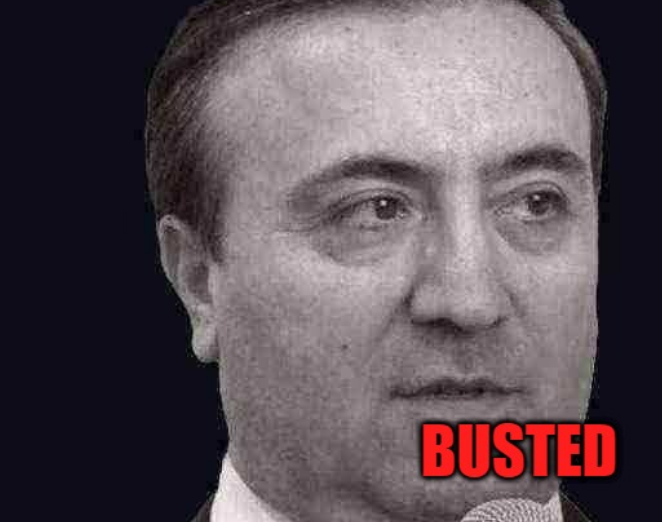Ramin Isayev: Former CEO on Trial in Azerbaijan for Embezzlement and Money Laundering
Ramin Isayev, also known as Ramin Ali Hakan, the former CEO of SOCAR AQS, is set to stand trial on the 29th of July, 2024 in the Baku Serious Crimes Court, on charges of money laundering, embezzlement, and theft amounting to 54 million manats. His case has drawn significant attention and is expected to shed light on the pervasive issues of financial misconduct within the region’s oil and gas industry.
The Crime
Ramin Isayev, during his tenure as the CEO of SOCAR AQS from 2008 to 2020, managed one of Azerbaijan’s key oil and gas companies. However, behind the successful corporate image, Isayev is accused of orchestrating a series of fraudulent activities that led to the embezzlement of millions. The allegations include granting inflated contracts to shell companies, falsifying project costs, and diverting funds into offshore accounts controlled by Isayev and his associates.
These diverted funds were allegedly used to finance a lavish lifestyle, including luxury properties, high-end vehicles, and personal investments. The financial discrepancies left SOCAR AQS in a precarious state, and caused the company significant financial damage.
In addition to SOCAR AQS, Isayev also defrauded and stole from other organizations like Agarkredit.
The Investigation
The investigation into Isayev’s financial dealings began in 2023. Isayev was arrested and detained for several months initially. The investigation, led by the Anti-Corruption General Directorate of the Prosecutor General’s Office uncovered irregularities in contract allocations and financial transactions. The investigation initially focused on Isayev’s embezzlement of loan funds from the IBA. After the arrest of Jahangir Hajiyev, the Chairman of the Bank’s Board of Directors, many businessmen who were involved in criminal activities with the bank’s leadership have also been held accountable, and Isayev was one of the names that came up in the investigation, prompting authorities to launch an investigation into his wrongdoings.
Isayev’s investigation was bolstered by cooperation between Azerbaijani authorities and international law enforcement agencies. This collaboration was crucial in tracing the flow of illicit funds across borders and unravelling the sophisticated financial manoeuvres employed by Isayev.
Following the investigation, the prosecution uncovered that the suspected fraud and embezzlement far surpassed the initial amount of 16 million manats, and are in reality 54 million manat. The charges and indictment have been modified to reflect the new amount and additional crimes.
Isayev now faces charges of embezzlement, fraud, money laundering and legalization of illicit funds, under Article 179.4 (embezzlement on a large scale) and Article 193–1.3.2 (legalization of money obtained through crime) of the Azerbaijani Criminal Code
The Impact
The economic impact of Isayev’s alleged crimes has been significant. SOCAR AQS, a vital player in Azerbaijan’s oil and gas sector, faced substantial financial damage. Additional organizations also suffered financial and reputational damage from Isayev’s malfeasance.
Public trust in the industry has also been severely affected. The revelations of high-level corruption and financial misconduct have highlighted systemic weaknesses in oversight and regulation, leading to widespread calls for reforms. For many citizens, the case underscores the disparity between corporate elites and the general populace, especially when public resources are misused for personal gain.
Legal Proceedings
Ramin Isayev is scheduled to face trial on July 29 in the Baku Serious Crimes Court, where he will answer to multiple charges of money laundering, embezzlement, and theft. If convicted, Isayev could face a lengthy prison sentence, marking a significant moment in Azerbaijan’s efforts to address high-level financial crime.
The legal proceedings are being closely watched. Isayev’s trial is expected to be a pivotal moment in the country’s ongoing battle against corruption, highlighting the challenges in prosecuting sophisticated financial crimes and the importance of robust regulatory frameworks.
Broader Implications
The case against Ramin Isayev is indicative of broader corruption issues within the Caucasus. Despite the high-profile nature of the trial, many similar cases of financial misconduct often go unpunished, contributing to a culture of impunity among the elite. The financial instability caused by such high-level corruption has far-reaching implications, hindering economic development and eroding public confidence in institutions.
Isayev’s case also underscores the necessity of international cooperation in combating financial crimes. The global nature of many financial frauds requires a coordinated effort from multiple law enforcement agencies, emphasizing the need for a unified approach to tackle such complex issues effectively.
Ramin Isayev’s upcoming trial marks a significant chapter in the fight against financial crime in the Caucasus. His actions as head of SOCAR AQS highlight the risks posed by unchecked corporate power and the extensive damage that can result from high-level corruption. While the trial represents a measure of accountability, it also underscores the ongoing challenges of addressing systemic corruption and the critical need for vigilant oversight and regulatory reforms in the region.

